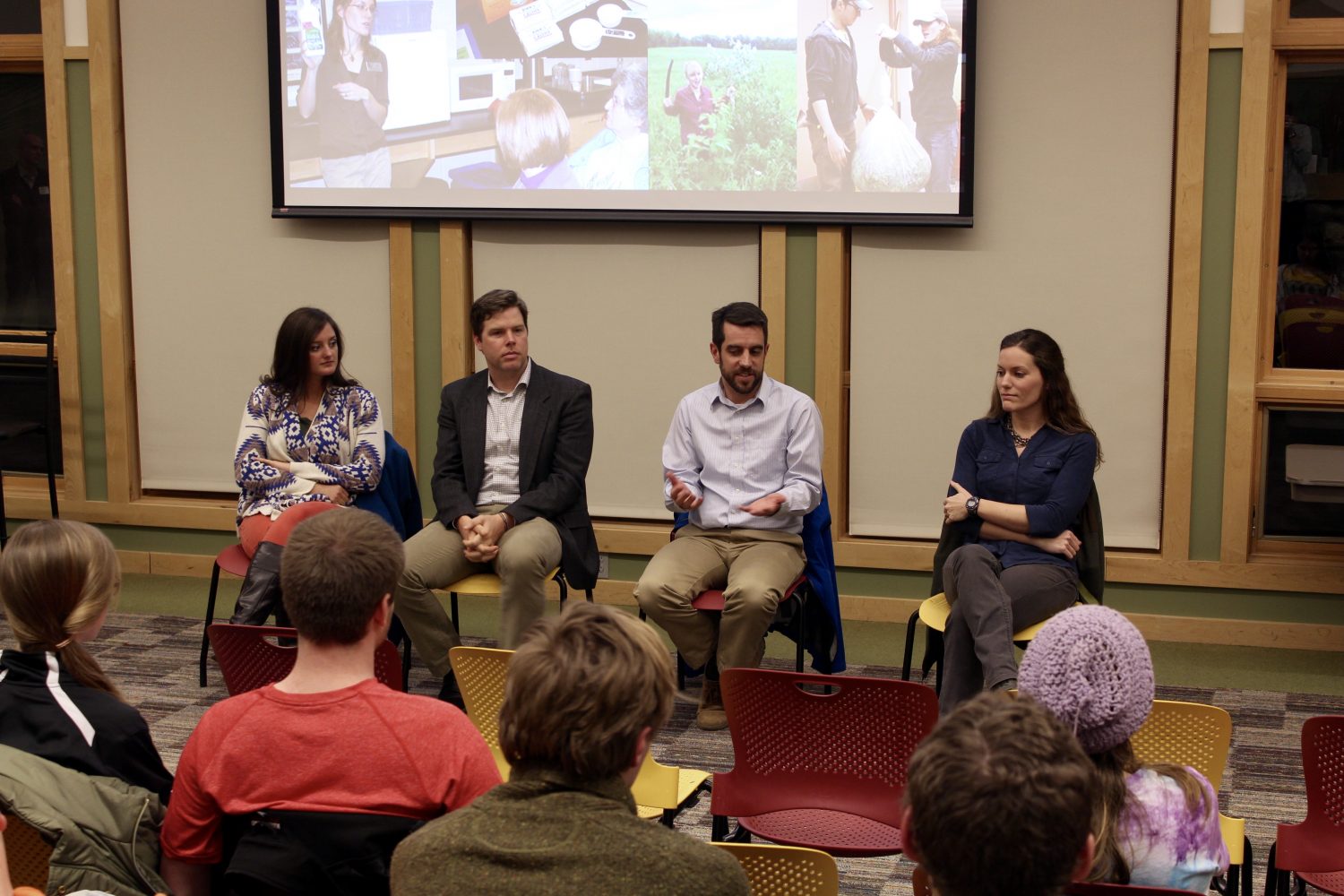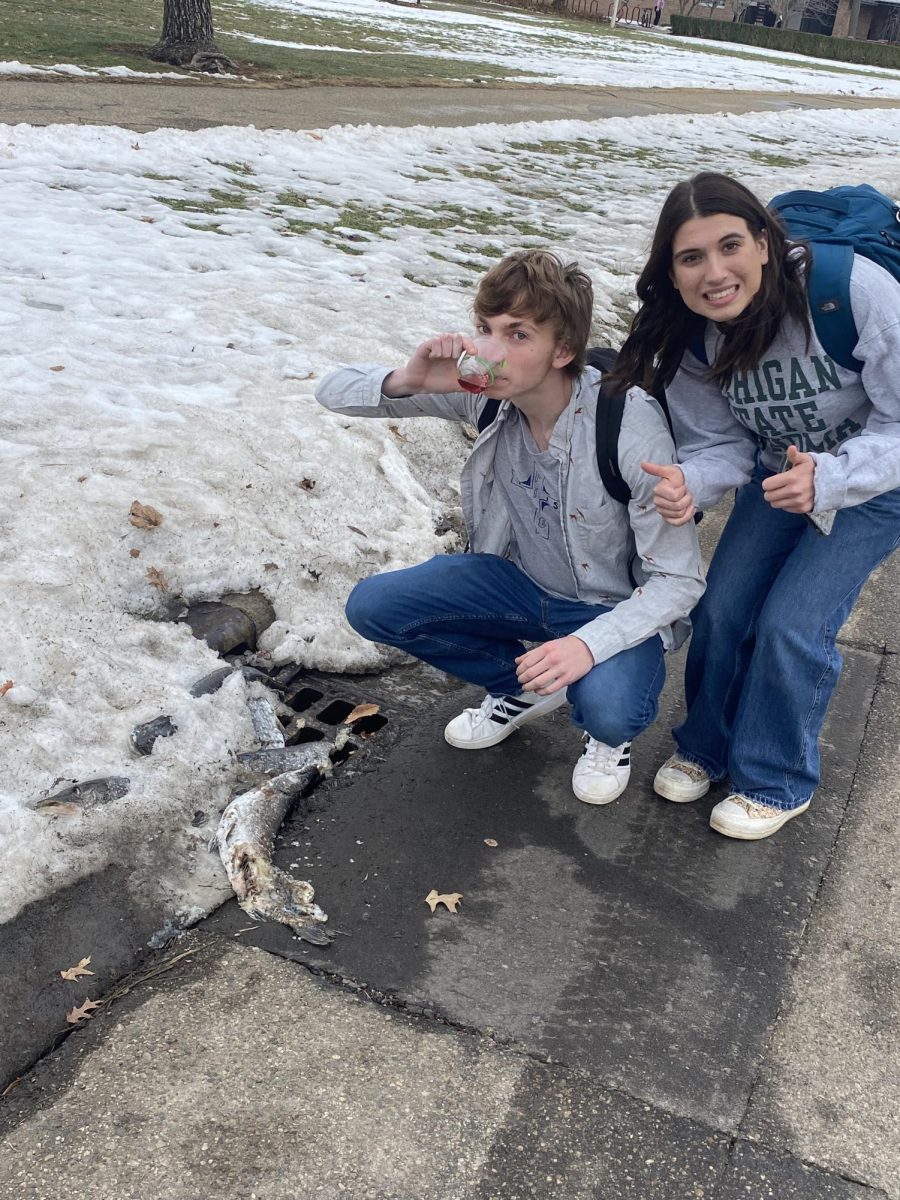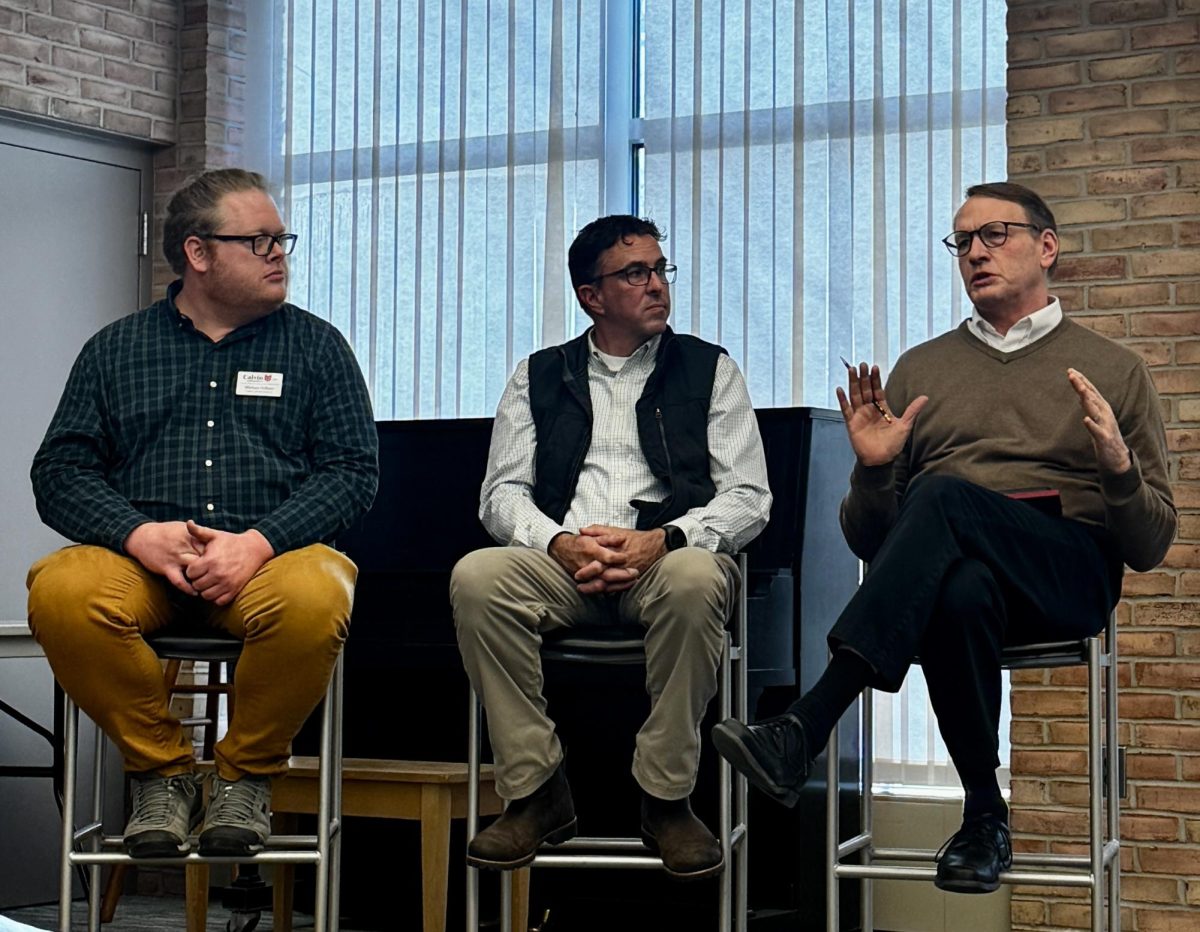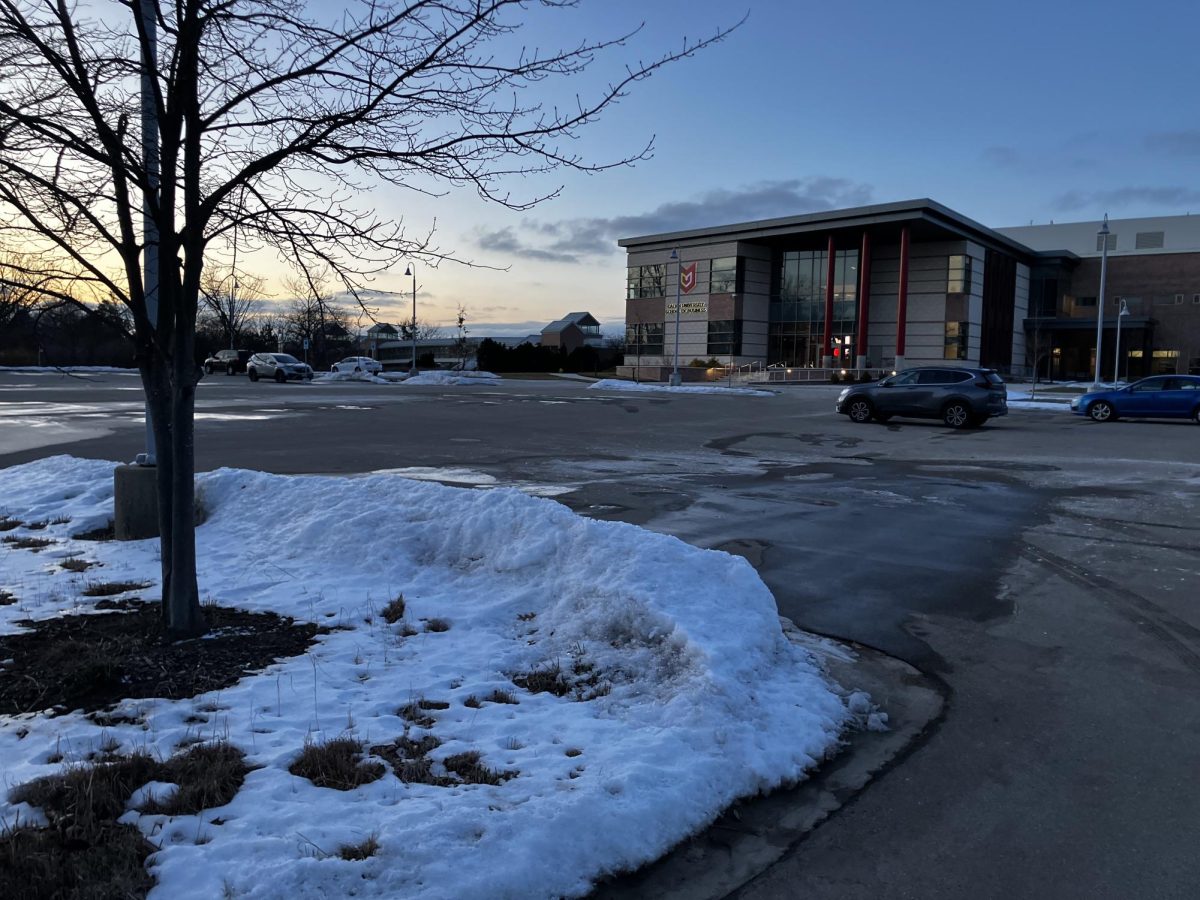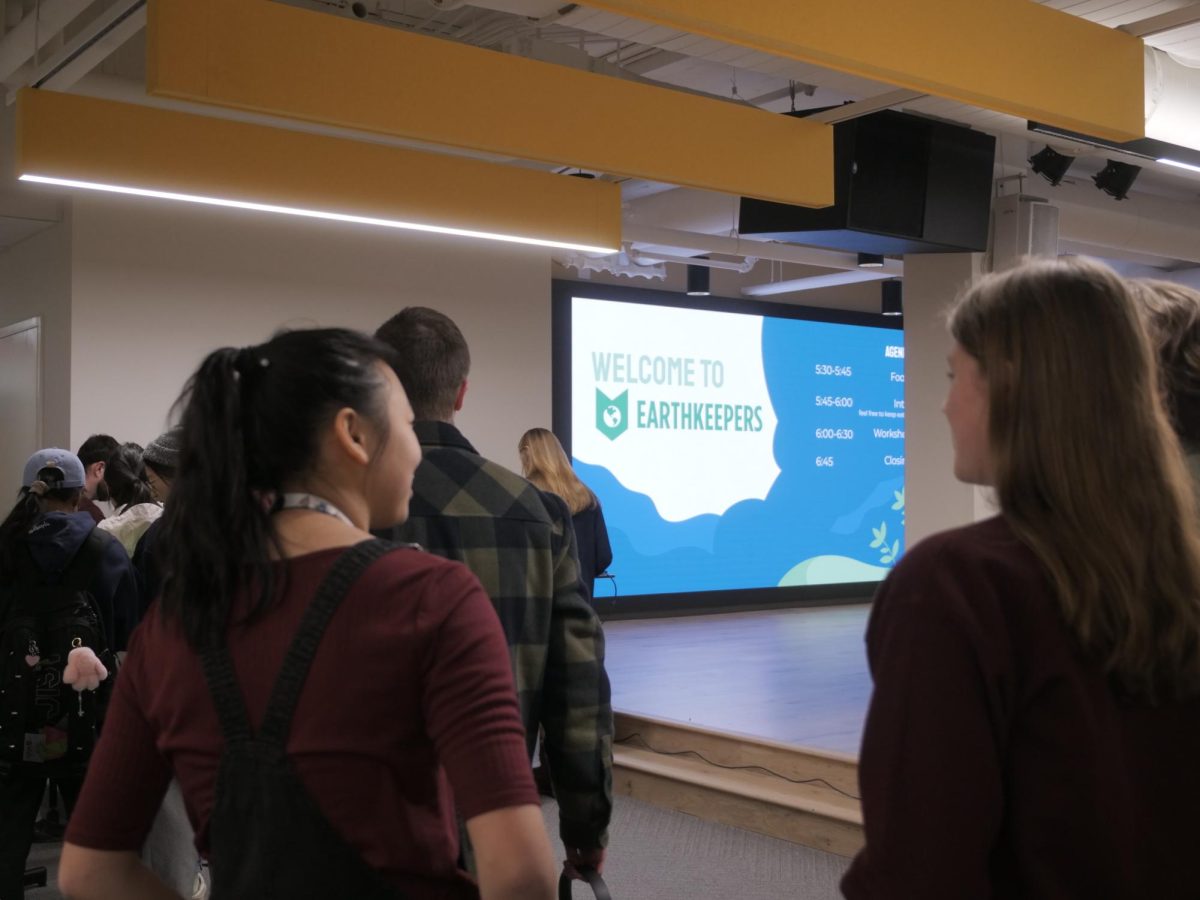Four local professionals in environmental science spoke at a panel discussion at the Bunker Interpretive Center on Monday evening.
Andy McIntyre, Jen Howell, Jackie Landon and Wes Landon shared their personal stories and answered students’ questions about pursuing a career in the field of environmental science. Thirty-four visitors filled the classroom at the Bunker Interpretive Center to hear about preparing for a career related to environmental science.
Aquatic biologist Jackie Landon opened up the evening with her career story. Landon attended Olivet College and worked for the DNR after graduation. She received her Master’s degree in Aquatic Biology from GVSU in 2012 and obtained certifications in pesticide application, wetlands restoration and SCUBA diving.
Wes Landon originally wanted to be a marine biologist, but decided to pursue architecture and landscaping at Michigan State University when his family and friends talked him out of marine biology. He received his landscape architecture degree from MSU in 2010.
Landon stressed his love for his position as co-owner of Native Edge, LLC, despite his regret at allowing himself to be talked out of what he had thought was his dream. “People will try to talk you about of doing what you want to do … Stick to what you want to do and don’t listen to anybody but yourself,” he said.
Both Jackie and Wes Landon worked for GEI Consultants in Allendale, Michigan, on restoration projects. However, in 2016, this husband and wife team founded their own environmental consulting and design firm: Native Edge, LLC, combining their passion for the environment with their skills in architecture and creative development.
Andy McIntyre has been the chief operating officer at John Ball Zoo in Grand Rapids since 2008. McIntyre grew up in Kentucky and received a master’s in business and administration from University of Colorado. His previous positions included studying endangered birds in Hawaii and the western U.S., giving percussion lessons and teaching kids about coral reefs and marine biology in Florida.
McIntyre shared his advice from his personal career journey, emphasizing the importance of pursuing a passion: “If you have a program that you’re involved in or a class that you’re involved in and you really want to pursue that talk with your professors, talk with those people that can connect you in that field with internships, ’cause that’s how I got my first job.”
Calvin College graduate Jen Howell received a master’s in fisheries and wildlife from Michigan State University. Howell worked for Pierce Cedar Creek Institute in Hastings, Michigan. In this position, Howell combined restoration work, teaching and research into what she called her “dream job”.
Howell attributes her passion for environmental stewardship to her fourth grade summer spent in the woods behind her house. She cared for the woods by picking up trash and collecting eggs to save them from getting run over by dirt bikes. Though her mother may not have truly understood why Howell brought bird eggs into the house, Howell shared how great “an impact that had on letting [her] be who [she] was going to be because in no other way had they [Howell’s parents] really influenced a love for the outdoors.”
The floor opened up for questions after each panelist had shared their career journeys. Students took advantage of the chance to pick the brains of professionals about which experiences might build a resume, when to pursue graduate school, how to use a generic biology degree to one’s advantage and what to do when faced with undesirable obstacles. All of the panelists echoed McIntyre’s advice to “follow your passion. Don’t let other stuff get in the way … Always take a little bit of risk.”
Howell suggested jumping on unpaid internships, even if you have to live on rice and beans for a summer to make it work. “If you do intern or volunteer, treat it like a job,” Jackie said in regards to building a resume through ways to get involved with environmental science through volunteer opportunities and internships.
This panel successfully served as an opportunity for Calvin students to “learn a little bit more about careers related to environmental science,” said Brandon Jacobs of the Calvin College Career Center.



